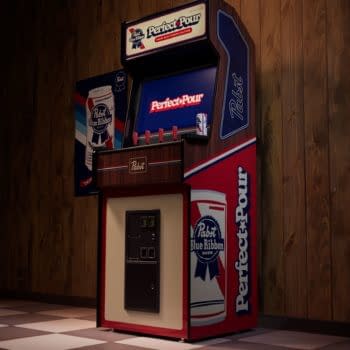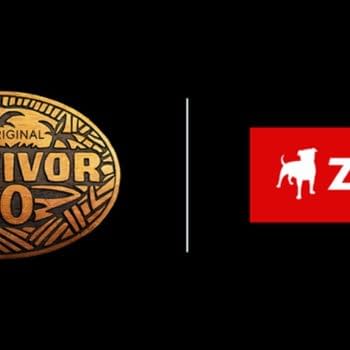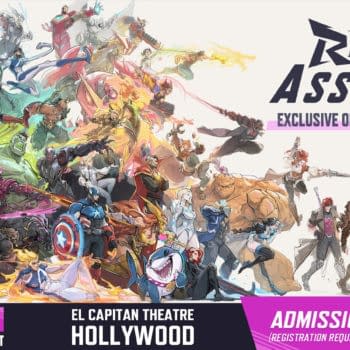Posted in: Board Games, Games, Review | Tagged: america, Bezier Games, board game, game review, trivia
Being Close Is Good Enough: We Review 'America' The Board Game
I've enjoyed the works that come out of Bézier Games, specifically the One Night series that has made all of my gaming nights awesome with party games of deception and drunken screaming. But there are some titles in their library that require you to be somewhat sober and a little more intelligent beyond roleplaying. In their most recent shipment of games to us, I got a trivia game simply called America. Surprisingly, not political at all as I gave this one a spin.
America the board game is a trivial board game where getting close to the answer helps. That may sound awkward but it's actually quite genius. Up to six players take colored blocks and use them to make guesses on the board based on the card currently pictured. As you'll see below, you will see a card with three questions on it. One asks for a year, one for a state, and one for a number. You do not remove the card until all three questions are answered by everyone playing, which will help you determine points.
Using the card above as an example, it asks you when Angel from Buffy The Vampire Slayer first became a vampire, which you answer by placing a block on the year grid on the board. Once a spot is taken, the next player takes a guess, but they cannot post on the same spot at the first player who went. Then it asks you what state Sunnydale is in, using the same system, followed by how many vampires Buffy killed in the show. Once everyone has made their guesses, you pull out the card and tally points.
The points system is where the game gets interesting. If you guessed it right, you get 7 points. If you guessed close to someone's right answer or within one square of the right answer, you get 3 points. You also have the option on the board of betting that no one guessed the right year, number or state for points, as well as no one even coming close by putting extra squares on the indicated areas. Once a round is up, you tally the points and move everyone's block around the outside of the board as indicated and play moves clockwise with a new starting person.
What makes America the board game so interesting is that you don't need to be 100% correct. It helps, but really, you can play off of other people's intelligence. A good example of this is that if you know someone who is good with pop culture trivia, you can see what they answer and stick your block right next to theirs on another state or number. You can be completely clueless about where the first brewery was, or how many people visit Disneyland a year, as long as you know someone else who might know the answer or be able to guess better. It makes the game far more intriguing when someone comes close, another puts a piece down by them, and it turns out the person following their lead put it on the correct answer by accident.
The game's rules suggest that you only need to play six rounds and see who has the highest score. I say if you're going to call the game America, you need to play for keep and play for the biggest numbers. An average game with the six round rule will probably go 20-30 minutes, but you can get a good hour or hour and a half if you play to 100 points. And that's an important thing when it comes to board games is whether or not you can actually extend the fun if you're having fun or like a challenge.
I really enjoyed America as a game, it was easy to set up and get into, the rules are not complicated, even people who don't understand what's going on at first can get into it easily after a few rounds. And aside from the pop culture references, the game can be educational about America the country in general. I recommend it as a fun little party game, but it's also a game where you can play with teenagers if you happen to be in a family and want to teach them something in the process.

















